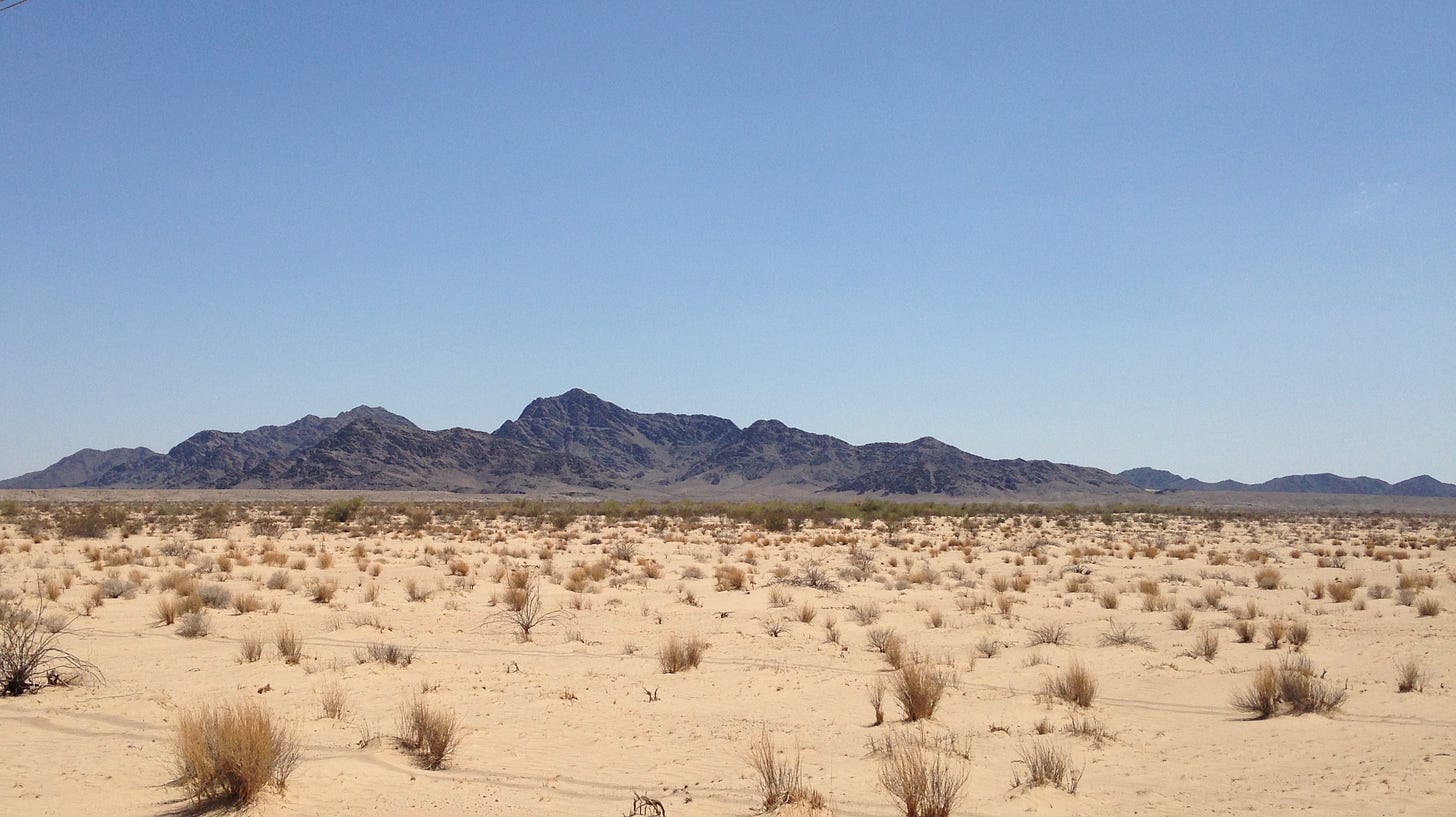This is Part Five of a special essay series for paying subscribers to Letters from the Desert.
Parts 1 through 4 are linked below:
The word desert only began to mean a place of extreme aridity somewhat late in its life. Around the 14th or 15th centuries, the modern sense of the word — more or less “a large dry treeless area” — started to appear in pre-Gutenberg Chaucerian English. As late as the 18th Century, though, English speakers still used the word to apply to places, such as the Great Plains in North America, that were quite lushly vegetated grasslands or prairies which simply lacked trees. The word came into English with the Normans sometime after 1066; In Old French, it had meant something akin to “wilderness,” forested or not. The original Latin form of the word was a past participle of deserere, the verb “To forsake.” This is literally the same sense used in English in the phrase “desert island,” and our word for leaving one’s military post without permission comes from the same root.
That Latin verb itself had roots, linguists conjecture, in the hypothetical Neolithic language Proto-Indo-European. The word or word fragment “ser,” meaning “to line up,” eventually got attached to the particle “de-“ meaning something between a simple negative and an implication of undoing the word being modified. A de-ser-ted place, then, is disorderly. Not useful. Not inhabited or organized.
The word “desert” as applied to arid ecosystems, then, is doing a lot of cultural heavy lifting.
Keep reading with a 7-day free trial
Subscribe to Letters From the Desert to keep reading this post and get 7 days of free access to the full post archives.








